Dzhon Makdonald - Appointment for Tomorrow [story]
Here you can read online Dzhon Makdonald - Appointment for Tomorrow [story] full text of the book (entire story) in english for free. Download pdf and epub, get meaning, cover and reviews about this ebook. City: Kokomo, year: 1949, publisher: Popular Publications, genre: Science fiction. Description of the work, (preface) as well as reviews are available. Best literature library LitArk.com created for fans of good reading and offers a wide selection of genres:
Romance novel
Science fiction
Adventure
Detective
Science
History
Home and family
Prose
Art
Politics
Computer
Non-fiction
Religion
Business
Children
Humor
Choose a favorite category and find really read worthwhile books. Enjoy immersion in the world of imagination, feel the emotions of the characters or learn something new for yourself, make an fascinating discovery.
- Book:Appointment for Tomorrow [story]
- Author:
- Publisher:Popular Publications
- Genre:
- Year:1949
- City:Kokomo
- Rating:3 / 5
- Favourites:Add to favourites
- Your mark:
- 60
- 1
- 2
- 3
- 4
- 5
Appointment for Tomorrow [story]: summary, description and annotation
We offer to read an annotation, description, summary or preface (depends on what the author of the book "Appointment for Tomorrow [story]" wrote himself). If you haven't found the necessary information about the book — write in the comments, we will try to find it.
Appointment for Tomorrow [story] — read online for free the complete book (whole text) full work
Below is the text of the book, divided by pages. System saving the place of the last page read, allows you to conveniently read the book "Appointment for Tomorrow [story]" online for free, without having to search again every time where you left off. Put a bookmark, and you can go to the page where you finished reading at any time.
Font size:
Interval:
Bookmark:
John D. MacDonald
Appointment for Tomorrow

He had heard the hush, the sudden silence, in the large outer office and he had frowned, wondering at the cause. For the past year he had been working with an increasing sense of urgency, and on the backing of his loyal staff depended much of his efficiency. And so the silence annoyed him.
His secretary, Martha Hood, came into his office, closed the door behind her. She said, hesitantly, There are some men to see you, Mr. Larkin.
This was no example of Miss Hoods usual crisp efficiency.
With irritation firmly under check, he said evenly, Why didnt you use the intercom? And who are these men?
Miss Hood looked very strange. Her face was pale. Her lips trembled. Suddenly he knew the answer.
He had been checking a column of figures. The long yellow pencil snapped in his fingers and he looked at the broken piece dully as it rolled across the desk, dropped to the floor with a tiny clatter. So soon! he said softly. So soon.
Her voice was thick with tears. Mr. Larkin, I...
Send them in, Miss Hood.
She turned and left the office and he saw that, tear-blinded, she missed the door handle the first time.
There were three of them. The last one carried a thick portfolio. They wore the traditional dull gray of the Future Bureau, the gray with crimson piping that had been caricatured so often in the public press a grim form of humor.
Mr. Samuel Larkin? the first one asked. Traditional and pointless question.
He nodded.
They stood in front of his big desk. As field agents of the Future Bureau, Mr. Larkin, it is our unpleasant duty to advise you that
Skip the standard routine. Samuel Larkin said heavily. Are you sure of your charts?
The spokesman said, We would hardly take this step unless all the figures had been checked many times. Over a year ago, according to our records, you were sent Form 89 A, advising you of a potential approaching danger period in your personal probability chart, and suggesting the standard series of habit and routine alterations to eliminate that danger. You made no such alterations.
My work at that time was too important, Larkin said.
Six months ago we substantiated our first prognosis and advised you in Form 89 B that only major and thorough alterations would have a chance of altering the extrapolation of your master chart.
It would have meant giving up my work, Larkin said. And I consider my work important.
For the first time the cold official manner was dropped. Evidently, the spokesman said drily. Get out the charts, Rogers.
The man opened the portfolio, spread the neat master chart on Larkins desk. The spokesman said, You will note the cyclical tendency of the past, your recurring periods of personal danger and serious illness. You will note that the present time is high on the curve of the extrapolated cycle.
Rogers took a transparent overlay, fitted it onto the master chart. This overlay, said the spokesman, shows the cyclical characteristics of your personality, the degree of emotional flux. Note that the line subtends the accident line very shortly in the future. This next overlay is over-all mortality and accident factors in your specific profession. Again there is subtending of the line in the immediate future. This last sheet is the calculation wherein there has been set up your personal mortality factor, multiplied by the standard indices. You will note that the final figure is exceptionally high.
Larkin studied the charts, then pushed them across the desk. He said, What chance have I got?
We are always asked that question, Mr. Larkin, even by men whose technical training is equivalent to yours. The answer is, of course, none.
Larkins lips felt numbed. He asked softly, How much time have I got?
Until tomorrow.
He felt the dull anger. Why not more time? Why not more?
You received the warning thirty days ago. You are fortunate to have an index of stability sufficiently high so that we can give you the exact day. Others do not receive this last notice. The law requires me to ask you if your affairs are in order.
They are, Samuel Larkin said.
Are there any questions?
I have the right to elect the usual alternative?
Everyone has that right, Mr. Larkin. No more questions?
The three trooped out. The last one closed the door behind him. Samuel Larkin sat at his desk, more alone than he had ever been in his life. Mechanically he picked up the papers on his desk, aligned the edges, put them in the desk basket.
The usual sounds from the outer office were subdued.
Larkin was a big man. His shoulders were heavy and there was a fullness under his chin, but he had kept his waistline down, kept his big body hard throughout the years of executive work. He was forty-seven years old, his dark hair liberally touched with gray at the temples.
Martha Hood came in timidly and he saw on her sensitive face an uncertainty, a tiny flicker of hope. Did they
Its true, Miss Hood, he said deliberately.
She gave a small stifled cry, turned her back to him. He went quickly around the desk, put his hands on her shoulders and turned her around. As he did so he realized wryly that it was the first time in the seven years she had worked for him that he had ever touched her. She had reported to him on her twenty-second birthday, selected from the stenographic pool on the basis of intelligence, beauty and breeding.
She did not look up at him. He put his big knuckles gently under her soft chin, lifted her face. She looked at him with streaming eyes. It isnt fair! she said. It isnt fair!
Fate isnt a very fair thing, my dear. Come now. Theres a lot to do. Last-minute things. His voice choked strangely on the last phrase.
She dried her eyes, went and got her notebook.
It was automatic. His subconscious mind had been planning what he would do. First he dictated a note to Farnum who was in London on a business trip. He told Farnum that from now on the venture was in his hands, that he had been lucky to have as effective and devoted an assistant as Farnum, and that the Board of Directors, in secret meeting three weeks before, had approved Farnum as his successor. He appended a power of attorney to facilitate Farnums cleaning up any last details.
He also appended a memorandum to Farnum in outline form, suggesting the methods of handling certain pending business matters.
Martha Hood took the dictation, and once he saw a tear drop onto the sheet as she wrote.
The chair creaked as he leaned back. Miss Hood, get my personal folder out of the safe file. I do not wish to be disturbed for the rest of the afternoon. Get me some writing paper and envelopes, please. Tell the rest of the staff that I will expect to see them, one at a time, at closing time.
She said, That will be hard for you, Mr. Larkin.
I want to see each one of them one more time, Miss Hood.
She brought back the items he had requested. He read over his will. For the first time in his life he was glad that his invalid wife had died six years before. He remembered how he had debated whether or not to tell her how long the Future Bureau gave her to live. And he had decided against it, had made her last days as happy as he could possibly make them. There had been, of course, no alternative for her.
He thought of his son, in school a thousand miles away, as he read over the will. It was adequate. There would be a generous allowance until school was finished, then enough for a year of travel. The rest of the estate would then be paid in a lump sum. He wrote the letter quickly in his large, sprawling hand, avoiding sticky sentiment, saying, at the end of the letter, that he was glad to have had such a son. Glad and proud.
Font size:
Interval:
Bookmark:
Similar books «Appointment for Tomorrow [story]»
Look at similar books to Appointment for Tomorrow [story]. We have selected literature similar in name and meaning in the hope of providing readers with more options to find new, interesting, not yet read works.
Discussion, reviews of the book Appointment for Tomorrow [story] and just readers' own opinions. Leave your comments, write what you think about the work, its meaning or the main characters. Specify what exactly you liked and what you didn't like, and why you think so.

![Dzhon Makdonald Appointment for Tomorrow [story]](/uploads/posts/book/927271/thumbs/dzhon-makdonald-appointment-for-tomorrow-story.jpg)
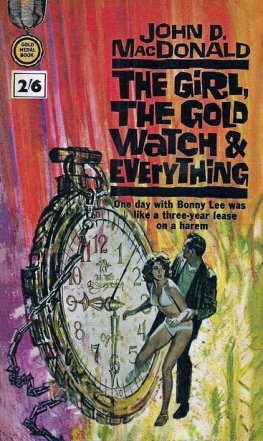
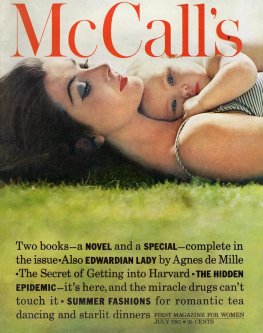
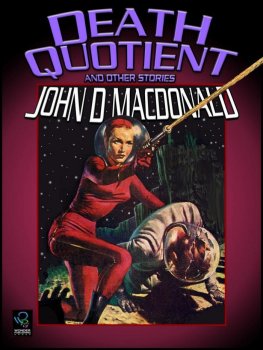
![Dzhon Makdonald - Area of Suspicion [= My Brother’s Widow]](/uploads/posts/book/910202/thumbs/dzhon-makdonald-area-of-suspicion-my.jpg)
![Dzhon Makdonald - Wine of the Dreamers [= Planet of the Dreamers]](/uploads/posts/book/910462/thumbs/dzhon-makdonald-wine-of-the-dreamers-planet-of.jpg)
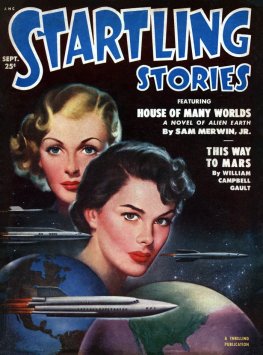
![Dzhon Makdonald - The Sinner of the Saints [story]](/uploads/posts/book/924785/thumbs/dzhon-makdonald-the-sinner-of-the-saints-story.jpg)
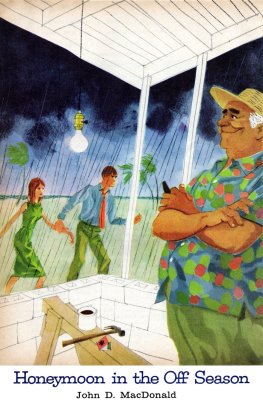
![Dzhon Makdonald - Travel Light and Travel Far [story]](/uploads/posts/book/921418/thumbs/dzhon-makdonald-travel-light-and-travel-far.jpg)
![Dzhon Makdonald - Nicky and the Tin Finge [story]](/uploads/posts/book/918175/thumbs/dzhon-makdonald-nicky-and-the-tin-finge-story.jpg)

![Dzhon Makdonald - Enough to Cure the Blues [story]](/uploads/posts/book/917701/thumbs/dzhon-makdonald-enough-to-cure-the-blues-story.jpg)
![Dzhon Makdonald - The Night Jaimie Grew Up [story]](/uploads/posts/book/917089/thumbs/dzhon-makdonald-the-night-jaimie-grew-up-story.jpg)
![Dzhon Makdonald - She Tried to Make Her Man Behave [story]](/uploads/posts/book/916939/thumbs/dzhon-makdonald-she-tried-to-make-her-man-behave.jpg)
![Dzhon Makdonald - The Girl in the Yellow Suit [story]](/uploads/posts/book/916411/thumbs/dzhon-makdonald-the-girl-in-the-yellow-suit.jpg)
![Dzhon Makdonald - The Giant Who Came to Our House [story]](/uploads/posts/book/916361/thumbs/dzhon-makdonald-the-giant-who-came-to-our-house.jpg)
![Dzhon Makdonald - He Knew a Broadway Star [story]](/uploads/posts/book/916358/thumbs/dzhon-makdonald-he-knew-a-broadway-star-story.jpg)